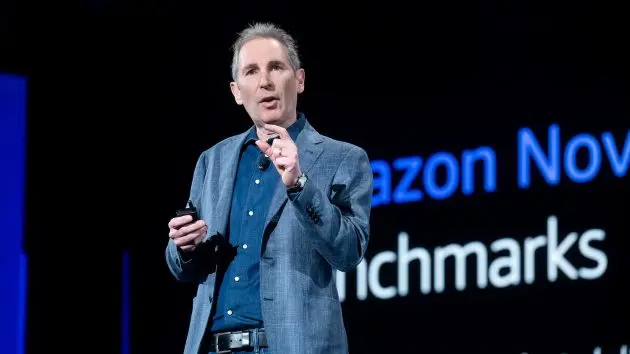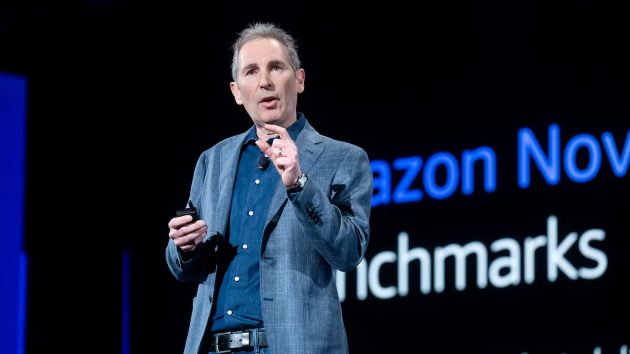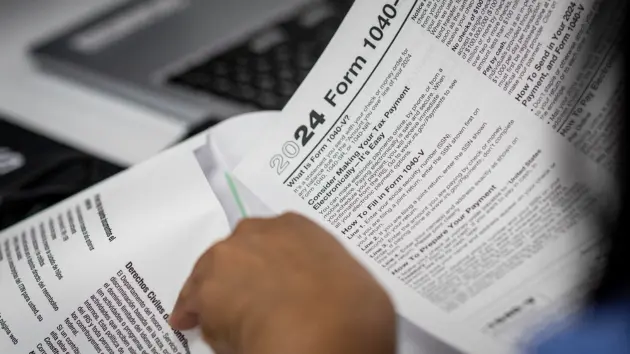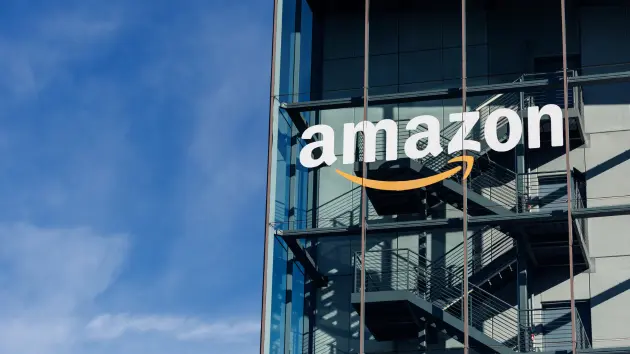
(NEW YORK) — Amazon is set to lay off thousands of corporate workers, despite billions in profits and lucrative lines of business spanning from e-commerce to cloud computing. The reason is artificial intelligence, the company said in a memo to employees on Tuesday.
“Some may ask why we’re reducing roles when the company is performing well,” wrote Beth Galetti, Senior Vice President of People Experience and Technology at Amazon.
“What we need to remember is that the world is changing quickly. This generation of AI is the most transformative technology we’ve seen since the Internet, and it’s enabling companies to innovate much faster than ever before,” Galetti added.
The extensive job cuts at a high-profile tech giant mark the latest in a series of layoffs top executives have attributed to AI, citing efficiency gains and shifting company priorities, some experts told ABC News.
Such job losses underscore the threat posed by AI, especially for some white-collar corporate positions, but the ultimate business impact of the technology remains uncertain and other factors like a slowing economy may be to blame for some of the corporate downsizing, they added.
“This is a wake-up call. And if Amazon does it, other companies might do it too,” Harry Holzer, a professor of public policy at Georgetown University and a former chief economist at the U.S. Department of Labor, told ABC News.
But, he added: “AI will affect a lot of different workers and businesses in ways we can’t anticipate. We have to keep monitoring it and help them adapt when changes occur.”
The fresh round of layoffs at Amazon follows other high-profile job cuts attributed to AI. Software company Salesforce cut 4,000 customer service jobs in September, just months after the company said AI could perform up to 50% of its work. Airline Lufthansa slashed 4,000 positions that same month, citing the “increased use of artificial intelligence.”
Online learning company Chegg said on Monday it had cut 45% of its global workforce — which amounts to 388 jobs — because new AI tools had significantly reduced web traffic previously generated by Google searches. Chegg slashed employees as it made its own investment in AI in an effort to deliver services with a “substantially lower cost structure,” the company said.
The World Economic Forum this year surveyed 1,000 large companies worldwide, estimating 92 million jobs lost over the next five years as a result of AI adoption, but anticipating the creation of 170 million jobs.
The AI-related layoffs at Amazon and some other firms reflect a “hollowing out of middle-skilled workers,” Lynn Wu, a professor of operations, information and decisions at the University of Pennsylvania, told ABC News.
“Amazon is not cutting warehouse workers. Robots can’t do what hands do yet,” Wu said. “And very high-skill workers — people developing robots and building AI — are still in high demand.”
The fresh round of layoffs affect a fraction of Amazon’s worldwide workforce, which amounted to 1.56 million people at the end of last year.
Amazon CEO Andy Jassy said in June that the company plans to revamp its positions as it adopts AI, telling employees in a memo that Amazon would need “fewer people doing some of the jobs that are being done today, and more people doing other types of jobs.”
Amazon said on Tuesday that it plans to “continue hiring in key strategic areas while also finding additional places we can remove layers, increase ownership, and realize efficiency gains.”
United Parcel Service (UPS) said Tuesday the company had cut 14,000 management positions this year, while slashing an additional 34,000 operational roles.
UPS sought to “create a more efficient operating model that was more responsive to market dynamics,” the company said, but its announcement did not mention AI.
To be sure, some experts downplayed the impact of AI, saying the productivity benefits of the technology remain uncertain and recent layoffs may owe to a host of other factors, including a wider economic slowdown. Many economists expect AI to add new job opportunities, even as it eliminates others, they noted.
In August, a report issued by MIT’s Media Lab found 95% of corporate AI initiatives generate zero return. The study examined more than 300 publicly disclosed AI ventures, drawing on over 150 surveys of executives.
“AI is an extremely useful, transformative technology, but I think we still need to work on it more to realize its full effects,” Isabella Loaiza, a researcher at MIT who studies AI and the workforce, told ABC News. “The role AI is playing in job losses is perhaps being overstated.”
“Companies really, really want to make AI work,” Loaiza added, but the ultimate implications of their initiatives for the labor market remains unclear. “It’s hard to know,” she added.
Copyright © 2025, ABC Audio. All rights reserved.




